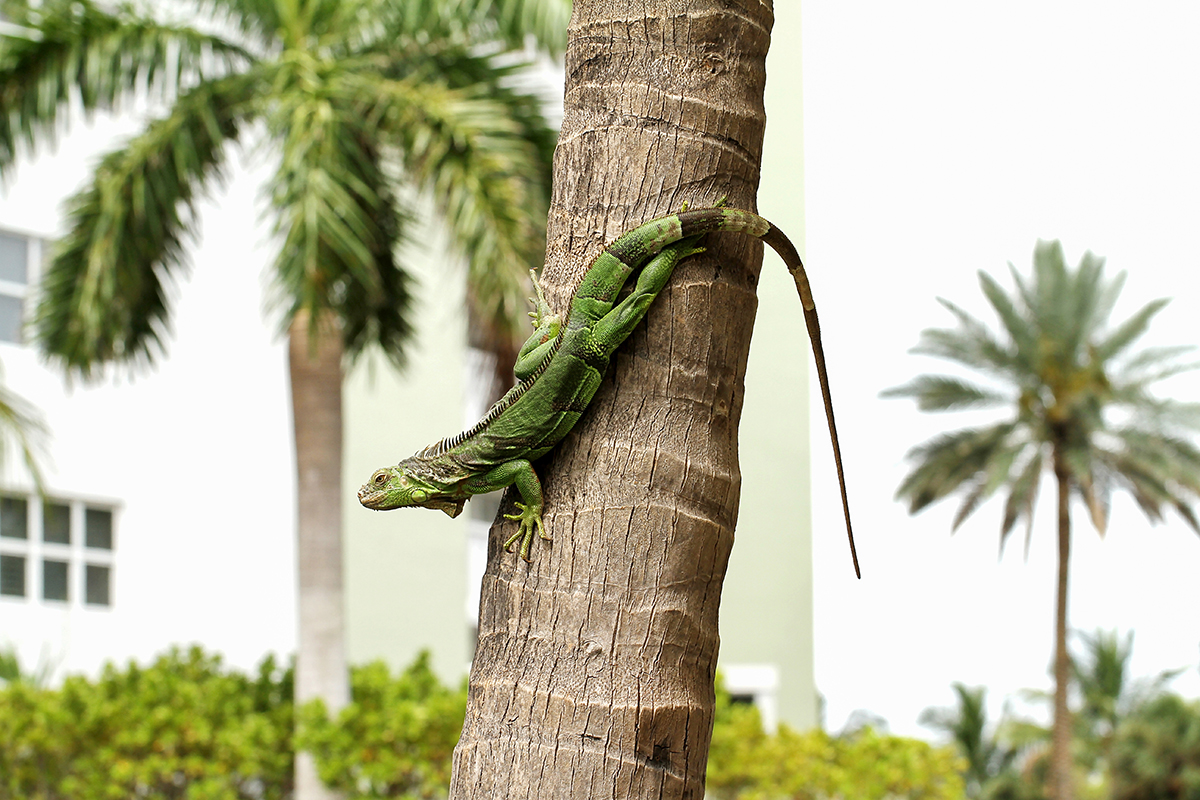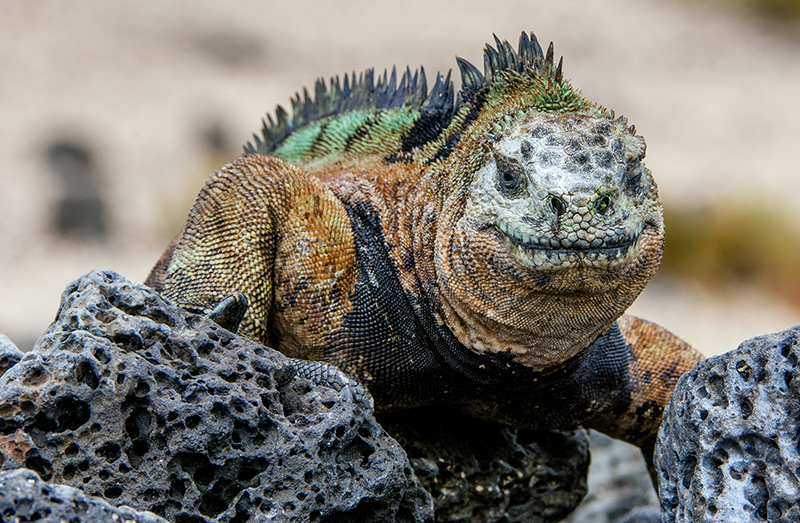Iguanas are found in Mexico, Central and South America, the Galápagos Islands, on some of the Caribbean islands, Fiji and Madagascar. “Today, many of the 44 species of iguanas are threatened with extinction, some with wild populations numbering less than 200 individuals.” Says the International Iguana Foundation.
According to the International Union for Conservation of Nature (IUCN), iguanas are among the most endangered animals in the world. In the wild, iguanas’ numbers are dropping drastically due to loss of habitat and predators. The Fiji banded iguana, for example, is found on only two islands, and its population has dropped by 50 percent in the past 30 to 45 years.
The Galápagos pink land iguana is labeled as critically endangered. As of 2012, only one small population existed in an area of less than 25 square kilometers (9.6 square miles). Only 192 mature members were counted. The Utila spiny-tailed iguana is also considered critically endangered. It’s only found on the island of Utila, Honduras, and its population is believed to be less than 5,000.
The Jamaican ground iguana was once thought to be extinct until its rediscovery in the 1990s. Today, the only known population consists of only 100 or so individuals, making the Jamaican ground iguana one of the most endangered of the iguana reptile species in the world.
Iguanas do have natural predators such as snakes, large carnivorous birds, and even wild canines but the truth is that most species of Iguanas are in danger of extinction from the actions of us humans.
The problems are similar wherever iguanas are found:
Poaching: Few iguanas escape the skilled, professional human hunter, however, for apart from their value in the pet trade, their eggs are dietary delicacies, as is their flesh, which is often called “gallina de palo,” or “tree chicken,” and is credited with medicinal properties which supposedly cure such conditions as impotency. Iguanas have been hunted for the past 7000 years as a source of protein and while hunting them is illegal there is a belief among local people in areas where Iguanas thrive, that everyone is entitled to catch 1 a year. If hunting iguanas doesn’t stop now they will be extinct in 5 years time or less.
Habitat encroachment: Iguanas suffer from loss of habitat due to illegal tree felling for charcoal production and development of roads for mining production.
The International Iguana Foundation is working to raise the funds necessary to implement iguana conservation programs throughout the world.
Support the International Iguana Foundation
[pam post_id=15973]





